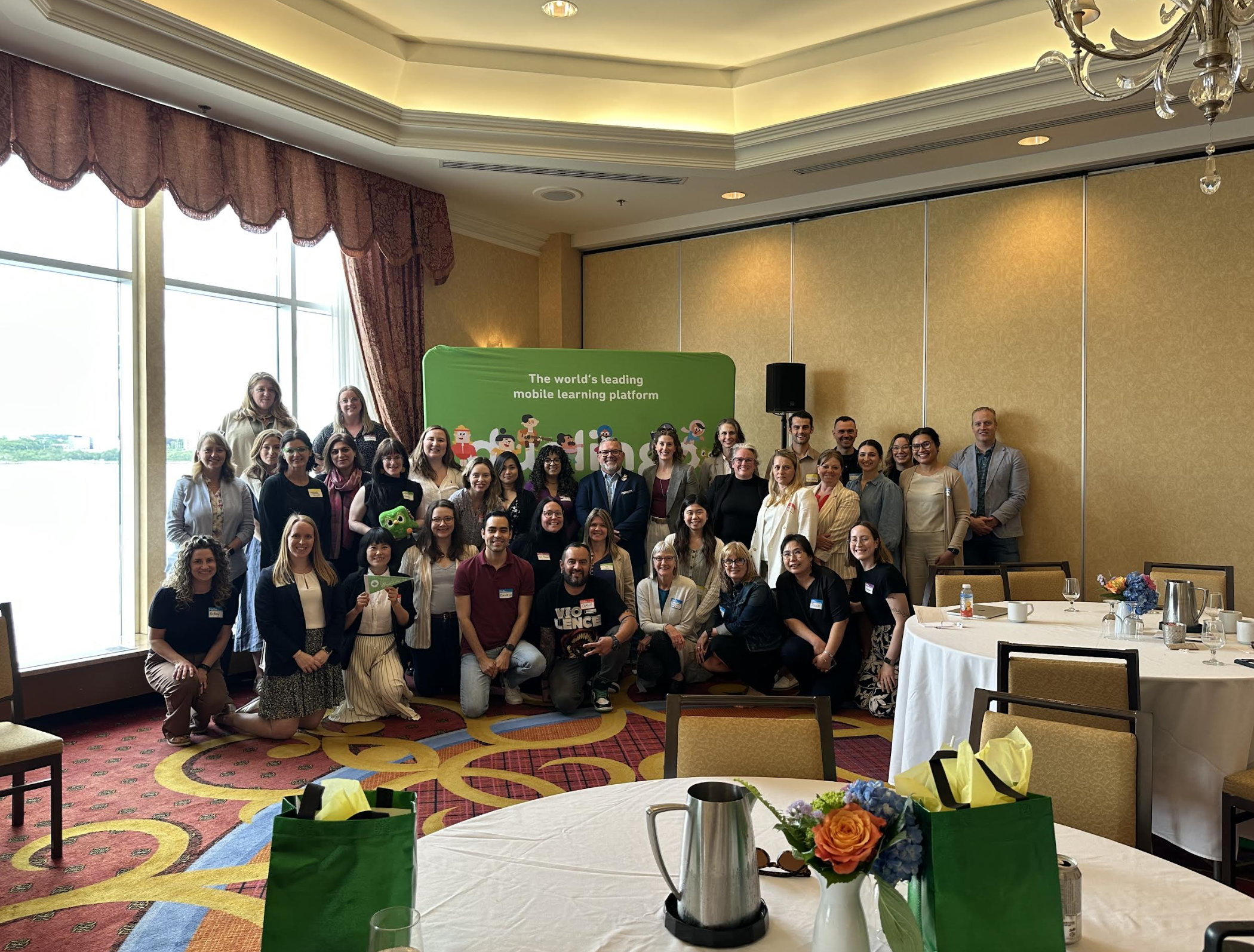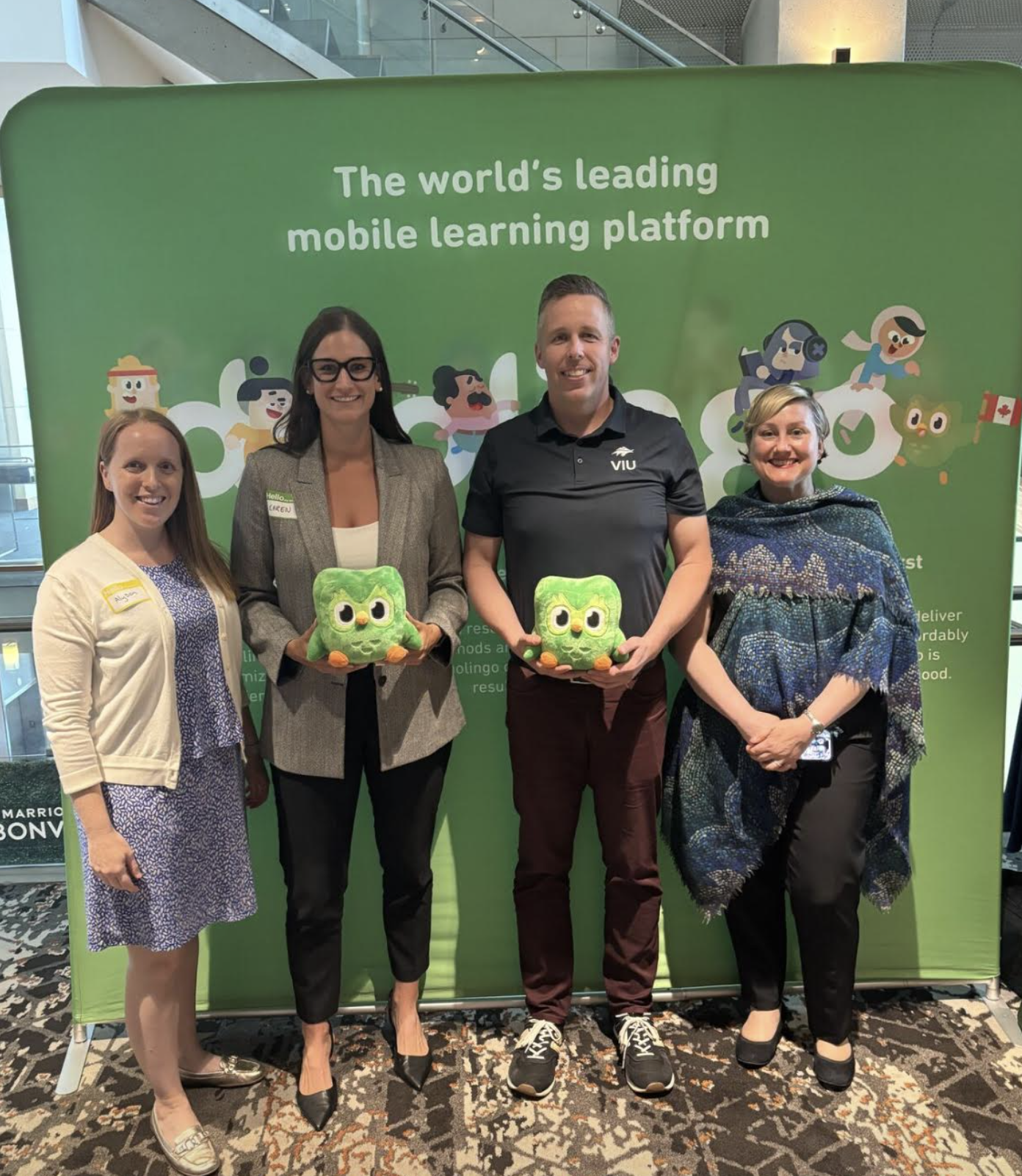At Duolingo, we believe that access to education begins with access to testing. And in Canada—a country known globally for welcoming international talent—we’re committed to helping institutions keep that door open.
That’s why we launched Canada Days of Learning, a coast-to-coast professional development series hosted in Vancouver, Toronto, and Halifax. These weren’t sales stops or product pitches. They were real working sessions, designed to bring together enrollment leaders, policy thinkers, researchers, and recruitment practitioners to explore one central question:
How can we shine brighter, by building a more accessible, secure, and responsive international education system—together?
A community that spans provinces and perspectives
More than 100 participants from 52 institutions across 6 provinces joined us this year, including admissions officers, international recruiters, enrollment directors, and pathway program staff. We were also joined by nine expert panelists and Duolingo team members from across product, research, and security, who shared new developments and insights from behind the scenes.

Each day of learning featured a different cast, but a common theme emerged across all three cities: this is a moment of change, and no one wants to face it alone. Whether it was discussing the latest IRCC policy shifts, unpacking regional enrollment trends, or looking under the hood of AI-powered testing security, attendees showed up with curiosity, candor, and a deep sense of shared purpose.
Navigating uncertainty with data and dialogue
In today’s landscape, Canadian institutions are navigating both opportunity and volatility. At Days of Learning, we took time to explore:
- Global mobility trends and how demand is shifting across emerging and traditional markets
- Policy impacts from caps on study permits to changes in post-graduation work rights
- Real-time DET data on applicant origins and markets
- Institutional best practices for evolving admissions processes
One key takeaway? Digital innovation isn’t just desirable—it’s now necessary. As Canada works to remain competitive among top global destinations, institutions will need tools that are both fast and fair.
From artificial intelligence in proctoring to adaptive test formats and layered identity verification, attendees got an inside look at how the Duolingo English Test is evolving to meet that challenge.
Not just faster. Fairer.
Throughout the events, we returned again and again to the role of testing in promoting—or limiting—access. As one participant noted, “Students have the academics and the ambition. But if they can’t access a test, the rest doesn’t matter.”
That’s where the DET comes in. Unlike traditional high-stakes exams, the DET can be taken from anywhere in the world, on-demand, with results returned in under 48 hours. There are no testing centers, no appointment waitlists, and no travel costs. That makes it more than just fast—it makes it possible for students who would otherwise be excluded.
This matters in Canada, where institutions are working hard to ensure a diverse, talented, and resilient international student population. And it matters globally, where testing access can still be determined by infrastructure, income, and location.
Shining a light on equity and inclusion
At each stop, we also shared updates on our University Access Program, which supports refugee students who have been displaced by conflict or persecution. Participants heard about our collaboration with UNHCR, our recent call for Canadian universities to join the program, and the urgent opportunity to help students impacted by recent policy shifts in other destination markets.
We also discussed our fee waiver program, which has now supported test takers in 176 countries, helping students apply to over 3,000 academic programs with no out-of-pocket cost for English testing.
The conversations that followed were a reminder that admissions policies are not just administrative decisions—they are access points. And making those access points more inclusive benefits everyone: students, institutions, and the sector at large.

What’s next?
Canada Days of Learning made clear that despite recent headwinds, the sector is full of momentum. Institutions are thinking critically, planning proactively, and leaning into technology to serve students more effectively and equitably.
At Duolingo, we’re proud to partner with this community. Our goal is not just to grow recognition of the DET, but to partner with Canadian institutions as they shape the future of international education. That means listening to feedback, sharing data, and continuously improving how we support your goals.
If your team wasn’t able to join us this year, we hope to see you at the next one. In the meantime, we’re always happy to connect, share insights, or help troubleshoot a challenge.
Because access to education starts with access to opportunity. And Canada, as always, is worth the journey.
